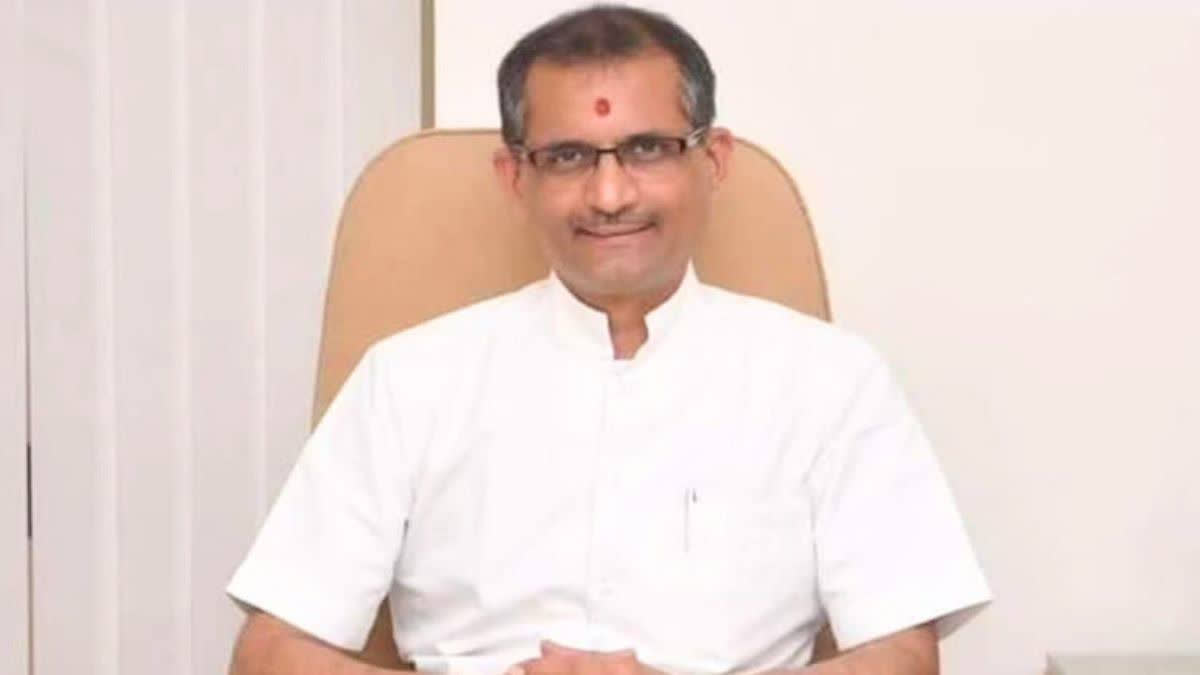New Delhi: Even though Union Public Service Commission (UPSC) chairman Manoj Soni has resigned from his post, he is still designated as the incumbent chairman of the UPSC in the commission’s directory. “Yes, he has resigned, but the government has not accepted his resignation. Hence, Manoj Soni is still officially designated as the chairman of the UPSC,” a senior government official said.
The Union Public Service Commission is a Constitutional Body established under Article 315 of the Constitution of India. The Commission consists of a Chairman and 10 members. When asked whether the government would approach Soni to reconsider his decision, the official ruled out such a possibility.
Amid the ongoing controversy involving Puja Khedkar, the development regarding Soni’s resignation assumes significance. The official, however, ruled out that Soni’s resignation has any connection with the Khedkar issue. On Friday UPSC said it has lodged a criminal case against Khedkar for faking her identity to fraudulently avail attempts in the Civil Services examination.
Soni, an eminent educationist, took over as a member of the Commission on June 28, 2017. He assumed charge as UPSC chairman on April 5, 2022, and his official retirement time was May 15, 2029. He reportedly resigned a month ago citing personal reasons. Soni has also expressed his desire to devote more time to “socio-religious activities.”
Appointment of chairman and members
According to Article 316, the chairman and other members of the Public Service Commission shall be appointed, in the case of the Union Commission or a Joint Commission, by the President, and in the case of a State Commission, by the Governor of the State
Formation of UPSC
The functions of the Public Service Commission were not laid down in the Government of India Act, 1919, but were regulated by the Public Service Commission (Functions) Rules, 1926 framed under sub-section (2) of Section 96(C) of the Government of India Act, 1919. Furthermore, the Government of India Act, of 1935 envisaged a Public Service Commission for the Federation and a Provincial Public Service Commission for each Province or group of Provinces. Therefore, in terms of the provisions of the Government of India Act, of 1935, and with its coming into effect on April 1, 1937, the Public Service Commission became the Federal Public Service Commission.
With the inauguration of the Constitution of India on January 26, 1950, the Federal Public Service Commission came to be known as the Union Public Service Commission, and the chairman and members of the Federal Public Service Commission became chairman and members of the Union Public Service Commission under Clause (1) of Article 378 of the Constitution.
Functions of UPSC
Under Article 320 of the Constitution of India, the Commission is, inter-alia, required to be consulted on all matters relating to recruitment to Civil Services and posts. The functions of the Commission under Article 320 of the Constitution are to conduct examinations for appointment to the services of the Union, direct recruitment by selection through interviews, the appointment of officers on promotion/deputation/absorption, framing and amendment of recruitment rules for various services and posts under the government, disciplinary cases relating to different Civil Services and advising the government on any matter referred to the Commission by the President of India.
Read more: UPSC Chairman Manoj Soni Resigns Citing 'Personal Reasons'



